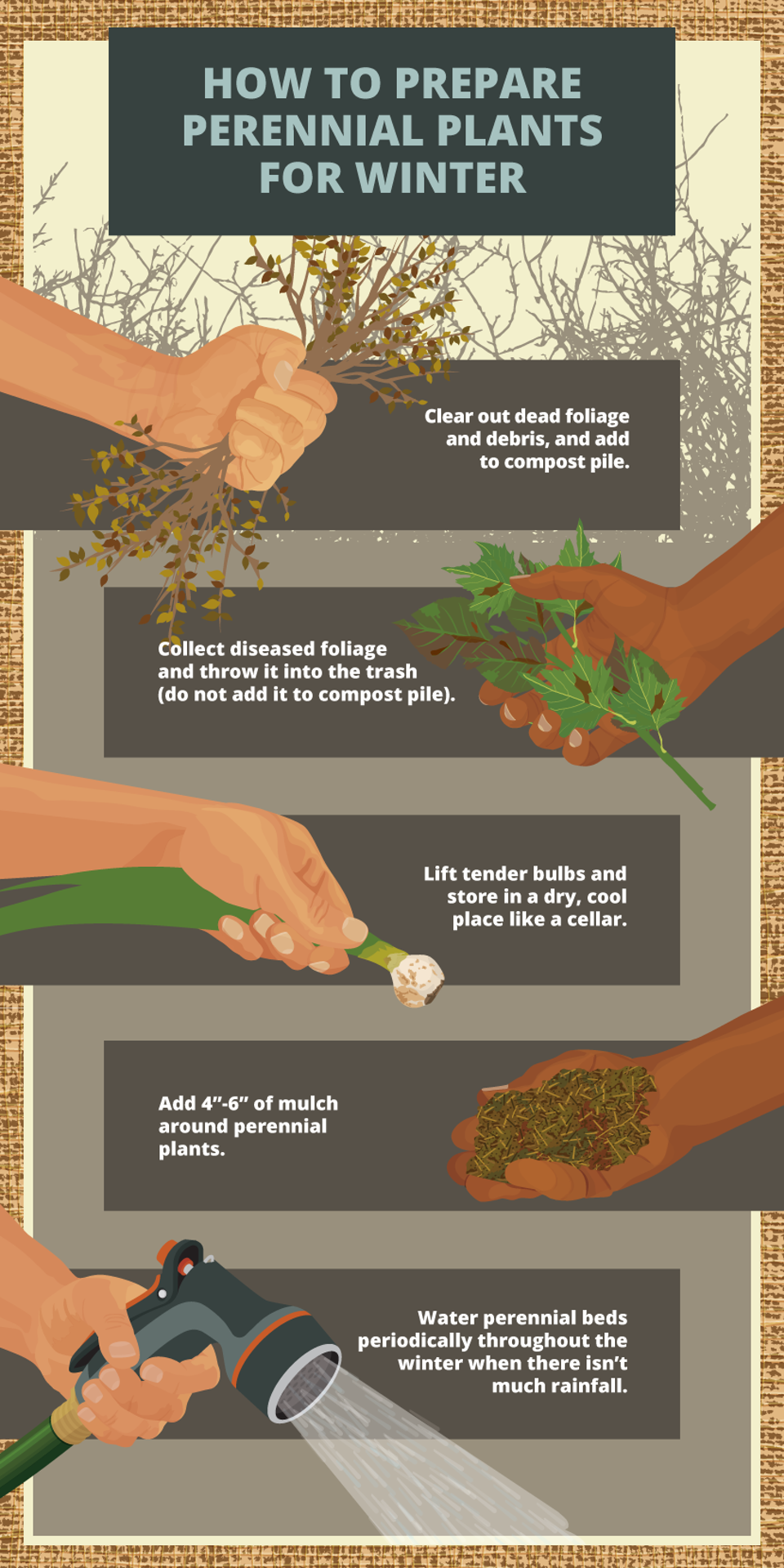In late summer and early fall, barbecues are still grilling, kids are still swimming, and the garden is in full glory. Preparing for the coming winter feels wrong for so many reasons, but if you prepare your gardens this fall, your plants will thank you later. As hard as it is to envision, winter is a-comin’. Depending on where you live, Old Man Winter can be gentle or brutal on plants, trees, and shrubs. We’ve got some techniques to help you protect them.

You have probably heard this term before. If you’re unclear on what this means, it’s basically about cleaning up garden beds and covering (or otherwise protecting) everything that isn’t an annual. Annual plants, including most vegetables, will be killed once a hard frost blows through. It’s their biological destiny as they have already reproduced for next year by making seeds.
Unless you’ve planted something that isn’t hardy in your zone, perennials, trees, and shrubs go dormant for the winter instead of dying. They may look dead as a doornail, but they’re simply laying low until the soil warms up and the days get long. Don’t be fooled by their silence – there are plenty of things going on during the cold months.
Perennials, trees, and shrubs are focusing on strengthening their roots by taking in nutrition from the soil. Even compost piles will continue to break down all winter. Sure, the microbes and redworms work at a much slower pace, but they continue to work nonetheless.

All dead foliage should be removed from garden beds. If there are plants that have died of a disease, such as verticillium wilt on tomato plants, bag them up and send them out with the rubbish. Do not add diseased foliage to your compost pile! However, leaves, stems, and spent flowers that have died due to the plants’ natural life cycle or a killing frost can go into your compost pile. When your deciduous trees drop their leaves, don’t throw them out. Add them to the compost pile or shred them to use as mulch instead.
Fall is the best time to make repairs to your beds, trellises, greenhouses, tools, etc., and you will thank yourself for the forethought when next season comes around. It’s also a terrific time to create a new garden bed that will be ready to go come spring.
The Women's Outdoor News, aka The WON, features news, reviews and stories about women who are shooting, hunting, fishing and actively engaging in outdoor adventure. This publication is for women, by women. View all posts by The WON